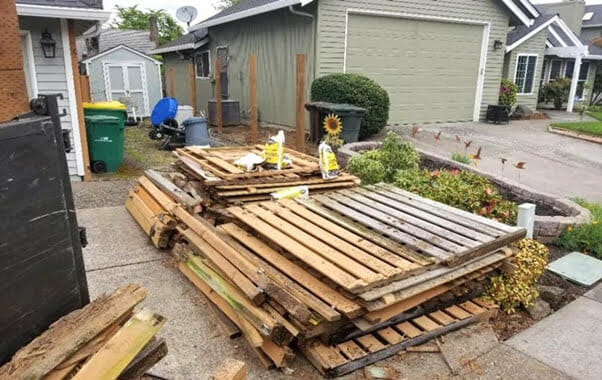Fencing disputes are a common source of conflict among neighbors. Sometimes, the conflict arises due to disagreements about the fencing materials used or the overall height of the fence. And at other times, it is about who shoulders the installation or maintenance costs. There are also cases of neighbors simply erecting fences with the aim of annoying their neighbors — commonly referred to as spite fences.
A neighbor cannot remove the dividing fence without your prior agreement. If you paid for half to install the fence and it is on the dividing line, then you both have a say. If it is on your neighbor’s property and was paid for by them, they can legally remove it if they like.
It is important to keep in mind that issues relating to the fencing are not usually as straightforward especially in cases where the fence in question has been built on the property line.
The following are answers to common fencing questions that will come in handy in helping to ensure that you are on the right as far as fencing laws and guidelines are concerned.
Can I remove a fence within my property?

Yes, you can remove a fence within your property. The law tends to give property owners superior rights as far as the exclusive enjoyment of their property is concerned. As a result, it will tend to side with you as far as removing anything that encroaches on your property is concerned. This includes a neighbor’s fence that is on your side of the property line.
However, this right is rarely absolute. One of the cases where you may not have the right to remove a fence that was installed by your neighbor on your side of your property is when you have allowed the fence to sit on your property for an extended period of time without removing it. This period usually varies, with some jurisdictions placing it at 12 years, while some stipulating a period that is as long as 20 years. In such cases, your neighbor will have rights with respect to that portion of your property that they have been using continuously over such a long period, through adverse possession.
Can a neighbor remove a fence between property lines?
No, a neighbor cannot just remove a fence between property lines without your permission. This is because, generally, the law treats the fence as belonging to both of you in cases where both of you are using the fence.
In most jurisdictions, you will be considered to be using the fence if you use it to enclose your property, if you attach another fence to it in the course of enclosing your property, or if you use your property right up to where the fence stands. Your neighbor will also not have a right to remove the fence if both of you contributed towards installing it, as in this case, they don’t have exclusive rights to the fence.
Fences that have existed on the property line for an extended period also fall into the category of fences that are assumed to be owned by both parties. For such fences, one party cannot simply choose to remove them without having express permission from their neighbor. Doing so could expose the person removing them to getting sued.

What can you do if neighbors’ fence encroaches on my property?
The first thing you should do is to contact your neighbor and let them know of the encroachment. This is because they might just not be aware of the encroachment and letting them know can start the process of getting an amicable and headache-free resolution.
Thereafter, you can get together with the neighbor and explore your options. You can choose to simply sell the strip of land on which the fence sits to your neighbor. And if selling off the strip of land is not an option, you can respectfully ask them to relocate the fence in such a way that it does not encroach on your property.
However, if they refuse, then your next step should be to get your property deed and confirm that the fence has been built on your side of your property. You can also hire a surveyor to make sure that this is the case. Armed with this information, you can then opt to go to mediation with your neighbor. And if that doesn’t work, taking them to court and then asking the court to compel them to remove the fence, compensate you for the land, or for the encroachment.
Can my neighbor put up a fence without permission?
Yes, a neighbor can put up a fence without your permission if they put it up on their side of their property. Most people install fences at about 2 to 8 inches away from the property line, and so in such a case, they have the absolute right to do whatever they want on their land and this includes installing a fence.
Do I need to pay for half of a dividing fence?
No, you don’t need to pay for half of a dividing fence if the fence is installed on the neighbor’s side of the property line, or if you are not using the fence.
For most jurisdictions, you will be deemed to be using the fence if you are using your land right up to where the fence is located, if you are using the fence to install a fence that encloses your property, or if the fence encloses your entire property. As a result, if any of these situations apply to you, you will likely be deemed to be using the fence and as such, you may be required to pay half of the costs of installing the dividing fence.
Neighbors are usually forced to share the costs of a dividing fence, including maintenance costs if there is a deed stipulating that the costs will be shared. And on the other hand, if there is an agreement stating that they won’t be shared, then the law will make the parties stick to the provisions of the agreement.
FAQ’s
Can my neighbor hang things from my fence?
No, your neighbor cannot legally hang things from your fence without your express permission. This is so especially if you have built the fence on your side of the property — about 2 to eight inches away from the property line is a safe distance. If they do, you can take them to court in order to have them stop hanging them, and if their actions damage your fence, you can sue them for any loss that occurs as a result of their actions.
What if my neighbor won’t pay their half of the fence?
If your neighbor won’t pay half of the cost of setting up a fence, you should first write them a letter outlining your intention to set up the fence, the reasons for doing so, an official assessment of the costs of setting up the fence, and then request them to contribute their fair share. After you deliver the letter, proceed to install the fence. Make sure that you keep a record of all the expenses you incur. And after the installation is complete, write to them a letter demanding that they pay their fair share.
If your neighbor fails to comply with your demand, you can then proceed to mediation as a way of resolving the conflict. And if that doesn’t work, then you can proceed to court asking for it to have your neighbor reimburse you for half of the money that you spent on the fence.
It is important to note that the rules and regulations that govern fencing tend to vary depending on a person’s state, local jurisdiction and HOA. Therefore, getting in touch with an HOA president, your realtor, a local representative, or even a lawyer, can go a long way toward ensuring that you are on the right side of the law as far as a fencing conflict is concerned.






